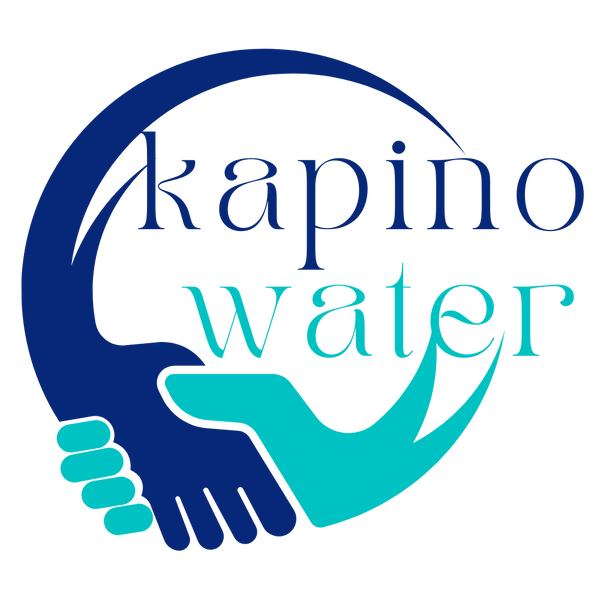
Bottled Water vs. Filtered Water: Which is the Better Choice for Your Wallet, Health, and Planet?
Share
Introduction
Water is life—literally. But when it comes to choosing between bottled water and filtered water, the decision isn’t always crystal clear. Is it worth splurging on those fancy plastic bottles, or does a filtration system offer better value and benefits? With so much misinformation floating around, it’s easy to feel overwhelmed. Let’s dive deep into the bottled water vs. filtered water debate and figure out which option wins in terms of health, cost, convenience, and environmental impact.
Bottled Water: The Glitzy Convenience
Bottled water has become synonymous with convenience. It’s easy to grab on the go, fits in your bag, and often comes with labels boasting pristine mountain springs or pure glacial sources. But is it really as great as it seems?
Pros of Bottled Water
- Convenience: Perfect for road trips, gyms, and emergencies when clean water isn’t accessible.
- Perceived Purity: Many brands market their water as sourced from untouched natural reserves.
- No Installation Required: Just grab, unscrew, drink. No setup, no maintenance.
Cons of Bottled Water
- Cost: Bottled water is expensive. A family of four can easily spend over £1,500 per year on it. Compare that to alternatives like the KW-01, which saves over £5,000 in five years.
- Environmental Disaster: Producing plastic bottles requires tons of fossil fuels, and most of them end up in landfills or oceans. Each bottle takes 450 years to decompose.
- Health Concerns: Despite claims of purity, studies have found microplastics, bacteria, and even harmful chemicals like BPA in bottled water.
- Questionable Sources: Some brands package regular tap water and sell it at a massive markup.
Filtered Water: The Modern Solution
Filtered water systems, like the KW-01, are gaining popularity among health-conscious individuals and eco-warriors. But are they worth the hype?
Pros of Filtered Water
- Cost-Effective: Though the upfront cost seems high, filtration systems save thousands over time. For example, Kapino Water's Hydrogen Water Dispenser costs about £2,110 over five years, including initial costs, filters and electricity. That’s a no-brainer compared to bottled water.
- Eco-Friendly: One filter can replace up to 8,000 plastic bottles, reducing waste dramatically.
- Health Benefits: Advanced systems remove contaminants like arsenic, lead, and microplastics while enriching the water with beneficial minerals like hydrogen and strontium.
- Convenience: No need to lug heavy bottles from the store. Plus, systems like the KW-01 provide instant hot or cold water, eliminating the need for kettles.
- Customizable Options: Depending on the system, you can tailor water temperature, alkalinity, and even filtration levels.
Cons of Filtered Water
- Upfront Cost: The initial investment can be intimidating, especially for high-tech systems.
- Maintenance: Filters need to be replaced periodically, and poor maintenance can compromise water quality.
- Installation Effort: Some systems require professional installation, though companies like Kapino Water offer free setup or discounts for those outside their coverage area.
Bottled Water vs. Filtered Water: Which is the Better Choice?
Let’s break it down across key factors to see which option comes out on top.
1. Cost
- Bottled Water: £1,500+ per year for a family of four.
- Filtered Water: £2,110 for five years, including filters and electricity (using KW-01 as an example).
Winner: Filtered water. Hands down.
2. Environmental Impact
- Bottled Water: Produces mountains of plastic waste and a huge carbon footprint during production and transportation.
- Filtered Water: Minimal waste (just replaceable filters) and no plastic bottles clogging the planet.
Winner: Filtered water.
3. Health
- Bottled Water: May contain microplastics, BPA, and undisclosed contaminants.
- Filtered Water: Removes up to 99% of harmful substances like arsenic, lead, and viruses while adding beneficial minerals.
Winner: Filtered water.
4. Convenience
- Bottled Water: Easy to carry and requires zero preparation.
- Filtered Water: Requires setup, but offers unlimited access to clean water at home. Systems like the KW-01 even provide instant hot and cold water.
Winner: Tie. It depends on your lifestyle.
5. Taste
- Bottled Water: Highly variable; some brands taste better than others.
- Filtered Water: Consistent taste quality, especially with advanced filtration systems.
Winner: Filtered water.
FAQs
Is bottled water safer than tap water?
Not necessarily. Bottled water is often just tap water in disguise, and studies have found contaminants like microplastics and BPA. High-quality filtered water is usually a safer bet.
How much can I save with a filtration system?
Using a system like the KW-01 can save over £5,000 in five years compared to bottled water. That’s more than £80 saved every month!
Do all filters remove harmful substances?
Not all filters are created equal. Advanced systems, like the KW-01, use technologies like reverse osmosis and UV sterilization to eliminate 99% of contaminants.
What’s the environmental impact of bottled water?
It’s catastrophic. One plastic bottle takes up to 450 years to decompose, and billions of bottles are discarded annually. Filtered water significantly reduces waste.
Are filtration systems hard to maintain?
Not at all! Most systems require a simple filter change every 6-24 months, depending on usage and water quality.
Conclusion
When it comes to the bottled water vs. filtered water debate, the better choice is crystal clear—filtered water wins in cost, health benefits, and environmental impact. While bottled water offers convenience, its high price, questionable purity, and environmental damage make it a less sustainable option.
Investing in a filtration system like the KW-01 is not just a smart financial move but also a step toward a healthier, greener future. It’s time to ditch the plastic bottles and make the switch to a more sustainable and cost-effective solution today!
